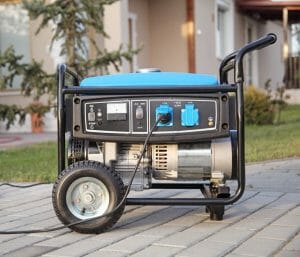With the first major Hurricane since 2005 making landfall in South Florida this September, many new and experienced Floridians got a strong reminder of the vulnerabilities we all face in the wake of an intense storm. Hurricane Irma showed us that destruction and widespread power outages are possible, and likely, following any size hurricane.
We hear a lot about pre-storm preparation and safety during the actual storm, but after a hurricane leaves the area, there are still significant safety measures that need to be considered during cleanup and recovery. Here are some tips to consider post-storm and when using a generator as a backup power source if electrical power is lost due to damage resulting from a storm.
Post-Storm Safety Reminders:
- Only leave your home after a storm when the storm has completely passed. Major tropical storms like hurricanes have bands with varying degrees of wind gusts. Though it may seem as though the storm has passed, it’s best to exercise caution and not leave until you know for certain that the storm is no longer a threat.
- Standing water with live downed power lines is a possibility after a storm. Be sure to exercise caution when walking or driving around your neighborhood in order to avoid electrocution. Do not step into any standing water near power lines.
- If you have water in your home due to the storm, unplug any electrical devices and shut off the breakers in your home. It is possible for water to get into the outlets and cause an injury or fire if power is still live or comes on following a storm.
- If you have any doubts about how to handle electrical issues in your home, wait for a licensed and professional electrician to service your electrical needs.
- Keep all grills and propane away from the home and any source of fire.
- When driving around after a storm, remember that any time a traffic light is out, you should treat that intersection as a four-way stop. If the light is flashing yellow, use caution when moving through the intersection, and if the light is red, you must stop and yield to other cars that may have a yellow flashing light.
Generator Safety Tips

- Only use a generator if you have working carbon monoxide detectors installed in your home. Even when taking proper precautions, the gas, which is colorless and odorless, may seep into your home through an unexpected pathway.
- Always follow all instructions that accompany your generator.
- Do not ever use your generator inside the home, in a garage, or enclosed area. This can cause carbon monoxide exhaust to seep into your home.
- Keep your generator outside, away from doors and windows where carbon monoxide can come into your home. Never place it on grass.
- Do not “backfeed” your generator, or try to power your house by plugging the generator into a wall unit. This could put yourself, or utility workers at risk of electrocution.
- Keep the generator dry, and do not use it in wet conditions. Do not use your generator if it rains unless it is covered and properly vented. Never touch your generator with wet hands.
- Store fuel for your generator in approved safety cans. Ask your local fire department what types of containers and fuel are legal and the best for use in your area.
- Never add gas to a generator that is running or hot. Turn the machine off and allow it to cool down before adding gas.
Major storms can cause damage, destruction, and injury or death if you are not prepared and do not take safety seriously. Tragically, serious injuries and fatalities happen after a storm due to a myriad of issues including heat stroke, failing to obey traffic laws, improper generator use, and accidents during cleanup. Make sure that you secure your home prior to a storm, and take precautions when moving about and using equipment after a storm.
If you have damage to your home or property after a storm, it’s important to contact an attorney before you contact your insurance company. Your attorney may be able to help you properly assess the damage and assist you with making insurance claims.
References:
Power Outage Safety. (n.d.). Retrieved September 15, 2017, from http://redcross.org/get-help/how-to-prepare-for-emergencies/types-of-emergencies/power-outage/safe-generator-use#Prevent-Carbon-Monoxide–CO–Poisoning
Hope, P. (n.d.). Generator Safety Tips That Will Get You Through a Storm, and Maybe Save Your Life. Retrieved September 15, 2017, from https://consumerreports.org/generators/generator-safety-tips-to-get-you-through-a-storm/
Safety Tips. (n.d.). Retrieved September 15, 2017, from https://fpl.com/storm/restoration/safety.html